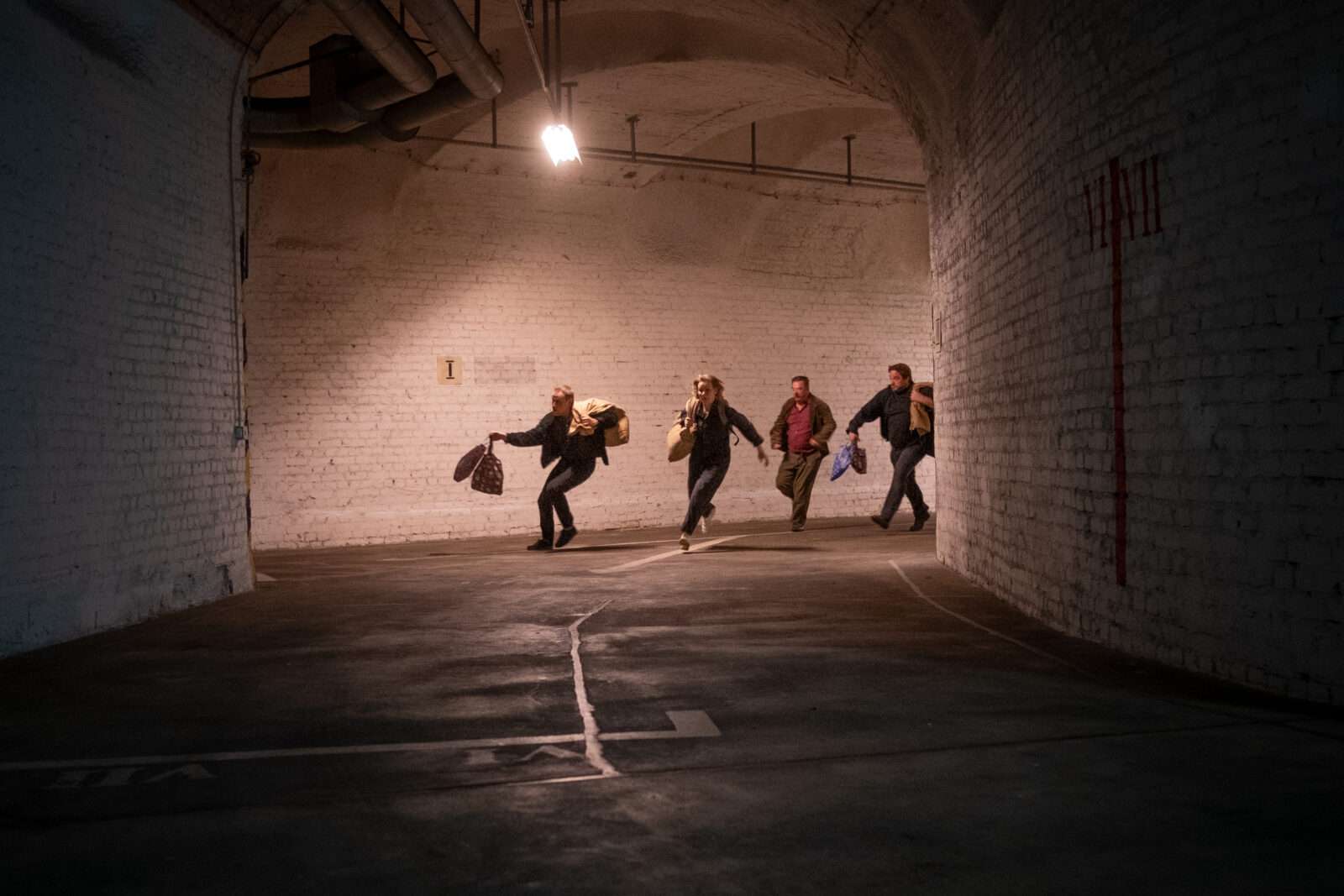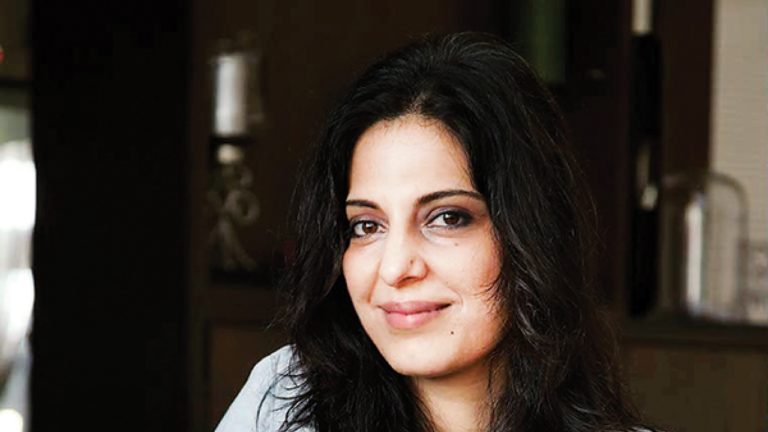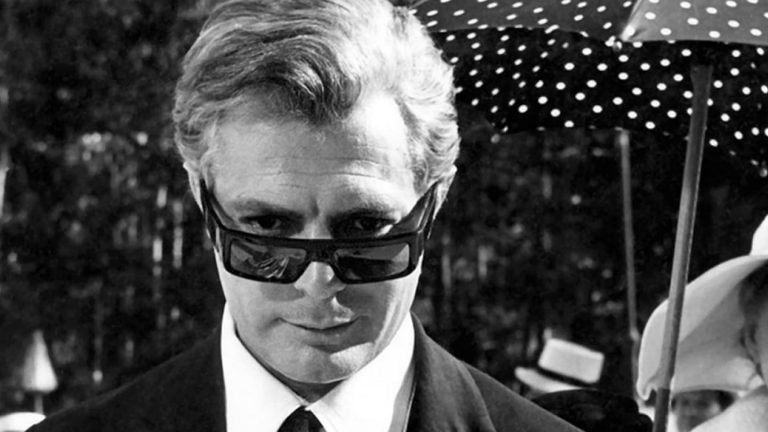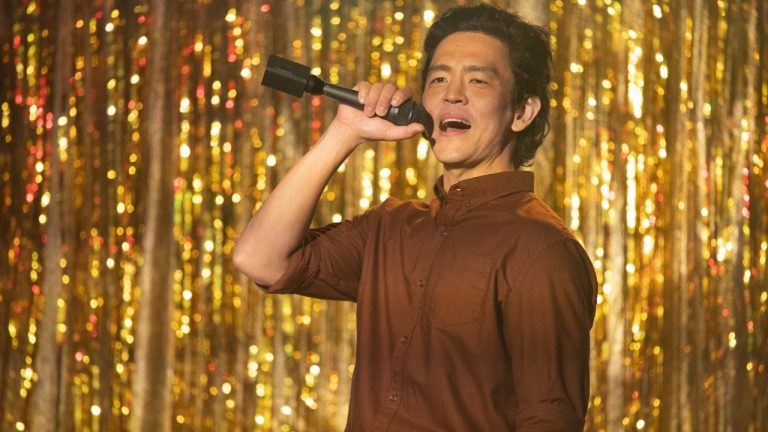Natja Brunckhorst’s “Two to One” (Original title: Zwei zu eins, 2025) is a social comedy taking potshots at the interval between East and West Germany’s reunification. In the 1990s, the Berlin Wall collapsed, and there were these intense months of upheaval. The future looks terribly uncertain, grim, and unsalvageable. Financially, it’s a mess. People’s lives are caught in doldrums. Is there any chance of recompense? This irretrievability is what the film taps into all its abundant exasperation, desire to rebuild life and surge forth despite umpteen hurdles. Who knows what the future holds?
Maren (Sandra Hüller) is keenly aware of her life being perched on standstill. She wants more, restless and aching, though she tries to keep up a happy family front. You can see the strains in her façade, how much she’s trying to be happy and complacent even when she’s creasing and in knots. She needs time to break out of the bubble of domesticity and reach out to exploration. Life holds many pleasures. She wants to plunge right into them. Her desires get further stoked when Volker (Ronald Zehrfeld), who used to be close, returns and causes palpable unease, inserting himself between Maren and her partner, Robert (Max Riemelt).
Volker teases bringing out more from life. In the squat of East Germany, life is drab, aimless, and sedentary. But there’s a toss of fate, a promising eventuality that seems poised to shift the direction of their lives. Helped by Markowski, who works at an underground storage facility, they sneak into the reserved premises. Surprised and delighted, they find tonnes of older East German wads of cash. The lure is immediate. There’s a small window in which they have to spend, so they seek the aid of everyone in the suburb to chip in. It’s people’s money, Maren, Robert, and Volker insist. They shouldn’t feel remotely guilty.
Though Huller’s name alone will be the biggest draw, there’s not much the film grants her scope within which to play and expand, and provoke. It’s a limited role corralled ultimately by the two men who continue to exert themselves. Though it is her Maren who pines for adventure is posited to propel the men into greater greed, she herself only becomes a functional presence, aiding and pushing.

The film desists from internally probing her when there’s rich scope for complexities on morality, choice, and freedom. Maren doesn’t have any compunctions or is hemmed in. She’s summarily sidelined, though she makes a great show of gaining centre stage. Hence, agency takes a backseat despite fuss and pretence. The film is almost afraid and hesitant to let her take action, as if cynical and distrusting of women in power. Hence, the men are allowed to prevail often to not very great consequence. They make mistakes, flounder, and are propelled only because Maren dangles a greater temptation to seize the moment, thrive, and have a rich life. The problem is when a film itself is wary of its characters, confused about whom to frontline and relegate to the margins.
There’s so much “Two to One” could have mined humour and wit from, but unfortunately, none is to be found. Instead, it’s a slew of contrived situations, characters who barely pass muster in being well-textured and compelling. What should have generated immense tension and unpredictability turned slovenly and careless, and barely engaging. Why should you care for characters if they don’t even guarantee you sustained interest? There could have been high stakes, situations of immense risk, but they are only flat, insipid, and staggeringly colourless. Why isn’t the drama accentuated when there is immediate scope for it?
It’s a preponderance of questions the film stirs, but you just can’t be bothered when it’s so stubbornly silly and extravagantly tipped for farce in a tonal mishmash. “Two to One” feels too stilted, pausing and awkward in its sense of pacing and orchestration of tension. Dramatically inert and awfully sluggish, the film needed a tighter script to fully hone its sprawling ensemble, which never happens because it mostly veers toward a few characters. A great sense of community belies the film; however, it rarely flowers. Hence, “Two to One” doesn’t have a tragicomic thrust in winding up.





![Aamis (Ravening) [2019]: ‘Tribeca’ Review – The true horrors of suppressing desire](https://79468c92.delivery.rocketcdn.me/wp-content/uploads/2019/05/Aamis-TRIBECA-Highonfilms1-768x525.jpg)


![Through My Window [2022] ‘Netflix’ Review: Another Teen Romcom That Tries Hard But in Vain](https://79468c92.delivery.rocketcdn.me/wp-content/uploads/2022/02/Through-My-Window-2022-Netflix-Review-768x432.jpg)